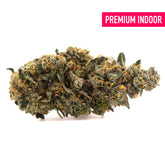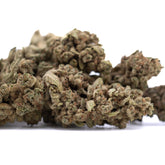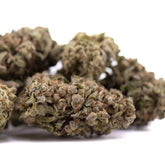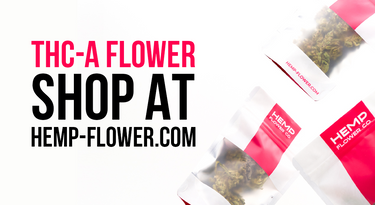The Rise of THCA: Understanding Hemp's Most Potent Cannabinoid

If you've been exploring the world of hemp products lately, you've probably encountered a new term making waves in dispensaries, online forums, and among cannabis enthusiasts: THCA. While CBD dominated the hemp conversation for years, establishing itself as the go-to cannabinoid for wellness seekers, hemp thca is quickly becoming the cannabinoid everyone's talking about—and for good reason.
But what exactly is THCA, and why is it generating so much buzz in both the hemp and cannabis communities? More importantly, how does it differ from the THC you've heard about, and what does this mean for consumers looking to explore legal hemp products?
The emergence of thca hemp represents one of the most significant developments in the legal hemp industry since the 2018 Farm Bill opened the floodgates for hemp-derived products. This cannabinoid is bridging the gap between traditional hemp products and cannabis, offering potency and effects that were previously unavailable in the legal hemp market. Whether you're a seasoned cannabis enthusiast or someone curious about hemp's therapeutic potential, understanding THCA is essential for navigating today's hemp landscape.
In this comprehensive guide, we'll explore everything you need to know about THCA—from its molecular structure and legal status to consumption methods and potential benefits. We'll also help you understand why thca hemp flower has become one of the most sought-after products in the hemp industry and how you can make informed decisions when exploring these products.
What Is THCA? Breaking Down the Science
THCA, or tetrahydrocannabinolic acid, is a naturally occurring cannabinoid compound found in raw hemp and cannabis plants. To truly understand what makes THCA special, we need to dive into some basic plant chemistry—but don't worry, we'll keep it straightforward.
When hemp plants grow in fields, they don't actually produce THC in significant amounts. Instead, they produce THCA as part of their natural metabolic processes. Here's what makes it unique: THCA hemp flower is essentially THC in its raw, acidic form. The "A" in THCA stands for "acid," indicating that this molecule has an extra carboxyl group (COOH) attached to it.
In its natural, raw state, THCA is non-intoxicating—meaning it won't produce the psychoactive effects or "high" typically associated with cannabis when consumed without heating. You could theoretically eat raw THCA-rich hemp flowers and not experience intoxication. This is because THCA's molecular structure is different enough from THC that it doesn't bind effectively to the CB1 receptors in your brain that are responsible for producing psychoactive effects.
The Decarboxylation Process: Where the Magic Happens
The transformation from THCA to THC occurs through a process called decarboxylation. This intimidating scientific term simply refers to the removal of that carboxyl group we mentioned earlier. When heat is applied to hempflower—whether you're smoking, vaping, or cooking—the THCA molecule loses its carboxyl group and converts into THC, the compound known for its psychoactive effects.
This conversion happens at specific temperatures:
- Smoking/Vaping: Instant decarboxylation occurs at combustion temperatures (around 400-450°F)
- Cooking/Baking: Slower decarboxylation at lower temperatures (typically 220-250°F for 30-45 minutes)
- Dabbing: Immediate conversion at very high temperatures
Understanding this process is crucial because it explains why raw THCA products can be legally sold in many jurisdictions while still offering potent effects once consumed through heating methods.
THCA vs. THC: Understanding the Critical Difference
Think of THCA as THC's raw precursor—its natural, unactivated form. The fresh hemp flowers growing in sun-drenched fields are packed with THCA, not THC. Only when that flower is heated does the transformation occur. This distinction is crucial for several reasons:
Chemical Structure
While THCA and THC are closely related, their molecular structures differ by just one carboxyl group. This small difference has massive implications:
- THCA: Non-intoxicating, larger molecule, doesn't easily cross the blood-brain barrier
- THC: Psychoactive, smaller molecule, readily binds to CB1 receptors in the brain
Effects Profile
The effects of these two cannabinoids are dramatically different:
- THCA (unconverted): Potentially anti-inflammatory, neuroprotective, and anti-emetic without intoxication
- THC (after decarboxylation): Psychoactive effects including euphoria, relaxation, altered perception, and various therapeutic benefits
Legal Status
This is where things get particularly interesting. THCA's legal status differs from THC in most jurisdictions:
- THC: Federally illegal in the United States (Schedule I), though legal in some states
- THCA: Falls into a legal gray area; often legal as a hemp product if the finished product tests below 0.3% delta-9 THC
This legal distinction has created an unprecedented opportunity for consumers in states without recreational cannabis programs to access potent hemp products legally.

The Legal Landscape: Navigating the THCA Gray Area
The legal status of hemp flower for sale containing high levels of THCA is one of the most fascinating—and complex—aspects of the current hemp industry. Understanding this landscape is essential for both consumers and retailers.
The 2018 Farm Bill: Opening the Door
The Agriculture Improvement Act of 2018, commonly known as the Farm Bill, federally legalized hemp and hemp-derived products containing less than 0.3% delta-9 THC on a dry weight basis. This was a watershed moment for the hemp industry, but it also created some interesting legal interpretations.
Here's the key: The law specifies delta-9 THC, not total THC or THCA. Since THCA technically isn't delta-9 THC until it's heated and decarboxylated, many hemp products containing high levels of THCA (but low levels of delta-9 THC) fall into a legal gray area at the federal level.
State-by-State Variations
While federal law provides a framework, state laws vary significantly:
- Permissive States: Some states have embraced THCA hemp products, treating them as legal hemp
- Restrictive States: Others have moved to ban or regulate THCA products, recognizing that they convert to THC when used
- Gray Area States: Many states haven't specifically addressed THCA, leaving its status uncertain
This patchwork of regulations means that what's legal to buy hemp flower in one state might not be legal in another. Some states have enacted "total THC" testing requirements that include THCA in their calculations, effectively banning high-THCA products.
Why This Legal Nuance Matters
For consumers, this legal framework has created unprecedented access to potent hemp products that would have been unthinkable just a few years ago. Licensed retailers can sell bulk hemp flower with THCA percentages that rival or exceed traditional cannabis—all within a legal hemp framework.
However, it's crucial to emphasize: Always check your local laws before purchasing THCA products. Laws are evolving rapidly, and what's legal today might not be tomorrow. Responsible vendors will clearly state where they can and cannot ship their products.
Why THCA Is Gaining Explosive Popularity
The THCA trend isn't just hype—there are legitimate reasons why consumers and industry insiders are excited about these products. Several factors are converging to drive this cannabinoid's meteoric rise:
1. Unmatched Potency in the Legal Hemp Space
High-quality thca hemp can rival or even exceed traditional cannabis in strength once activated through decarboxylation. It's not uncommon to find THCA flower testing at 20-30% THCA content, which converts to equivalent levels of THC when smoked or vaped.
For consumers, this means experiencing effects that were previously only available through state-licensed cannabis dispensaries—but now accessible through legal hemp channels. This potency revolution has fundamentally changed what "hemp" means to many consumers.
2. Versatility of Consumption
THCA offers remarkable flexibility in how it can be consumed:
- Heat it: Smoke, vape, or cook for psychoactive effects
- Keep it raw: Consume without heating for potential therapeutic benefits without intoxication
- Mix approaches: Some users incorporate both methods into their wellness routines
This versatility appeals to different consumer segments, from those seeking recreational effects to wellness enthusiasts interested in the therapeutic potential of raw cannabinoids.
3. Accessibility for Underserved Markets
For consumers in the 27 states without adult-use cannabis programs, legal hemp flower for sale provides an alternative that was previously unavailable. This has been particularly impactful in rural areas where cannabis dispensaries don't exist but hemp shops are becoming increasingly common.
Even in states with legal cannabis, some consumers prefer the hemp market due to:
- Lower prices compared to taxed cannabis
- No need for medical cards or age restrictions beyond 21
- Wider availability through online retailers
- Different product selections and boutique growers
4. Improved Quality and Craft Cultivation
The market for bulk hemp flower has matured dramatically over the past few years. What started as an industry focused on CBD biomass has evolved into a sophisticated market featuring:
- Craft growers specializing in THCA-rich cultivars
- Genetics development creating strains specifically bred for high THCA and rich terpene profiles
- Proper curing and trimming that rivals top-shelf cannabis
- Indoor, greenhouse, and outdoor cultivation options at various price points
Today's premium THCA hemp flower often surpasses traditional cannabis in appearance, aroma, and effects. The stigma that hemp is inferior to cannabis has been thoroughly debunked.
5. Transparency and Testing
Reputable THCA hemp vendors provide detailed lab testing showing:
- THCA percentage
- Delta-9 THC percentage
- Full cannabinoid profile
- Terpene content
- Tests for pesticides, heavy metals, and contaminants
This transparency gives consumers confidence in what they're purchasing and consuming.

Consumption Methods: How to Use THCA Hemp Flower
Understanding how to consume thca hemp flower properly ensures you get the desired effects while maximizing the value of your purchase. Different methods suit different preferences and goals.
Smoking
Method: Traditional combustion using pipes, bongs, or rolling papers
Decarboxylation: Instant conversion of THCA to THC at combustion temperatures
Pros:
- Immediate effects (within minutes)
- Full flavor and terpene experience
- Easy to dose by taking single hits
- No equipment needed beyond basic smoking accessories
Cons:
- Inhalation of combustion byproducts
- Strong smell that may not be discreet
- Effects typically last 1-3 hours
Best for: Experienced users who enjoy the ritual and immediate effects of smoking
Vaping
Method: Using dry herb vaporizers or concentrate vaporizers at controlled temperatures
Decarboxylation: Occurs at vaporization temperatures (typically 350-430°F)
Pros:
- Healthier than smoking (no combustion)
- Better flavor at lower temperatures
- More efficient cannabinoid extraction
- Temperature control for different effects
- More discreet than smoking
Cons:
- Requires purchasing a vaporizer device
- Learning curve for optimal use
- Device maintenance required
Best for: Health-conscious consumers who want efficiency and flavor
Raw Consumption
Method: Juicing fresh hemp flowers, adding to smoothies, or consuming in salads
Decarboxylation: None—THCA remains in its acidic form
Pros:
- No psychoactive effects
- Potential anti-inflammatory and neuroprotective benefits
- Full nutritional profile of the plant
- Can consume larger quantities without intoxication
Cons:
- Requires fresh or properly stored flower
- Taste may not appeal to everyone
- Effects are subtle and different from activated THC
- Limited research on optimal dosing
Best for: Wellness enthusiasts interested in potential therapeutic benefits without intoxication
Cooking and Edibles
Method: Decarboxylating hempflower in an oven, then infusing into butter, oil, or other cooking fats
Decarboxylation: Occurs during baking process (typically 220-250°F for 30-45 minutes)
Pros:
- Long-lasting effects (4-8+ hours)
- No inhalation required
- Discreet consumption
- Precise dosing when prepared carefully
Cons:
- Delayed onset (30 minutes to 2 hours)
- Stronger, longer-lasting effects that may be overwhelming for beginners
- Requires preparation time
- More difficult to dose accurately
Best for: Those seeking long-lasting effects or who cannot or prefer not to inhale
Dabbing
Method: Using concentrated THCA extracts (diamonds, crystalline) with a dab rig or e-nail
Decarboxylation: Instant at very high temperatures
Pros:
- Extremely potent and immediate effects
- Pure cannabinoid experience
- Efficient use of product
- Clean, flavorful when done properly
Cons:
- Requires specialized equipment
- Very high potency may be overwhelming
- Not suitable for beginners
- Higher cost per unit
Best for: Experienced users with high tolerance seeking maximum potency
Potential Benefits of THCA: What the Research Shows
While research into THCA specifically is still emerging, early studies and substantial anecdotal evidence suggest this cannabinoid may offer several potential therapeutic benefits. It's important to note that most research has been preclinical (laboratory and animal studies), and more clinical human trials are needed.
Anti-Inflammatory Properties
Several studies have indicated that THCA may possess significant anti-inflammatory properties. A 2011 study published in Biological and Pharmaceutical Bulletin found that THCA showed promise in reducing inflammation without psychoactive effects. This could make raw hemp thca consumption attractive for those managing inflammatory conditions who want to avoid intoxication.
Potential applications:
- Arthritis and joint inflammation
- Inflammatory bowel diseases
- Chronic inflammatory conditions
- Post-workout recovery
Neuroprotective Effects
Research suggests THCA may have neuroprotective properties, potentially helping protect brain cells from damage. A 2012 study in Phytomedicine found that THCA showed neuroprotective effects in preclinical models, suggesting potential applications for neurodegenerative conditions.
While these findings are preliminary, they've generated interest in THCA's potential for:
- Parkinson's disease
- Alzheimer's disease
- Multiple sclerosis
- General brain health and aging
Anti-Nausea and Appetite Stimulation
THCA has shown promise in reducing nausea and stimulating appetite in preclinical studies. A 2013 study found that THCA was effective at reducing nausea and vomiting in rat models, even at very low doses.
This could make thca hemp particularly interesting for:
- Cancer patients undergoing chemotherapy
- Individuals with eating disorders
- Those experiencing nausea from various causes
- People seeking natural appetite support
Pain Management
While more research is needed, anecdotal reports and the anti-inflammatory properties of THCA suggest it may help with pain management. When combined with other cannabinoids and terpenes in whole-flower consumption, the entourage effect may enhance these benefits.
Important Disclaimers
Research is ongoing: Most studies on THCA are preclinical, and human clinical trials are limited. The FDA has not approved THCA for treating, curing, or preventing any disease.
Consult healthcare professionals: Before using THCA or any hemp product for medical purposes, consult with a qualified healthcare provider, especially if you're taking medications or have existing health conditions.
Individual results vary: Responses to cannabinoids are highly individual based on factors like body chemistry, dosage, consumption method, and product quality.

How to Choose Quality THCA Hemp Products
Not all hemp flower for sale is created equal. The explosion of the THCA market has brought both exceptional products and questionable offerings. Here's how to identify quality:
Look for Comprehensive Lab Testing
Reputable vendors provide third-party lab results (Certificates of Analysis or COAs) showing:
- Potency: THCA percentage and other cannabinoid content
- Safety: Tests for pesticides, heavy metals, residual solvents, and microbials
- Compliance: Delta-9 THC levels confirming legal status
- Terpenes: Full terpene profile for flavor and effects
Never purchase products without accessible lab results. Quality vendors make these prominently available on product pages or upon request.
Examine Growing Practices
Premium thca hemp flower comes from cultivators who prioritize:
- Organic or pesticide-free methods
- Proper curing and storage to preserve cannabinoids and terpenes
- Hand-trimmed flowers for better appearance and potency
- Climate-controlled environments (for indoor/greenhouse products)
Assess Visual Quality
High-quality flower should have:
- Vibrant colors (typically green with purple, orange, or other hues)
- Visible trichome coverage (crystals)
- Intact structure (not overly dry or crumbly)
- Minimal stems and seeds
- Fresh, pungent aroma
Research Vendor Reputation
Before you buy hemp flower, check:
- Customer reviews and testimonials
- How long the company has been in business
- Their customer service responsiveness
- Return and refund policies
- Shipping practices and packaging quality
Consider Pricing
While price shouldn't be the only factor, understand market rates:
- Premium indoor: $100-300+ per ounce
- Quality greenhouse: $50-150 per ounce
- Outdoor: $30-100 per ounce
- Bulk purchases: Often available at significant discounts
Suspiciously low prices may indicate inferior quality, while extremely high prices don't always guarantee better products. For those using THCA regularly, bulk hemp flower options can provide significant cost savings.
Start with Small Amounts
When trying a new vendor or strain, start with smaller quantities to assess quality before committing to larger purchases. Many vendors offer sampler packs or smaller denominations.
Frequently Asked Questions About THCA Hemp
Is THCA legal?
THCA exists in a legal gray area. Under the 2018 Farm Bill, hemp products containing less than 0.3% delta-9 THC are federally legal. Since THCA isn't delta-9 THC until heated, many high-THCA products qualify as legal hemp. However, state laws vary significantly—some states have banned THCA products or enacted "total THC" testing that includes THCA. Always check your local laws before purchasing.
Will THCA get me high?
Not in its raw form. Raw THCA is non-intoxicating. However, when you smoke, vape, or cook THCA hemp flower, it converts to THC through decarboxylation, producing psychoactive effects similar to traditional cannabis. The potency depends on the THCA percentage and consumption method.
Will THCA show up on a drug test?
Yes, if you consume THCA in ways that convert it to THC (smoking, vaping, cooking), it will metabolize into THC metabolites that standard drug tests detect. Even raw THCA consumption might trigger positive results in some cases. If you're subject to drug testing, avoid THCA products.
How much THCA hemp flower should I use?
Start low and go slow, especially if you're new to cannabis products. For smoking or vaping, begin with one or two small inhalations and wait 15 minutes to assess effects. You can always consume more, but you can't un-consume. For edibles, start with 5-10mg of THCA (converted to THC) and wait at least 90 minutes before considering more.
What's the difference between THCA hemp and regular cannabis?
Chemically and in terms of effects once consumed, high-quality THCA hemp is virtually indistinguishable from cannabis. The difference lies primarily in legal classification: THCA hemp tests below 0.3% delta-9 THC in its raw state, qualifying it as legal hemp, while cannabis exceeds this threshold. In practice, modern THCA hemp rivals or exceeds traditional cannabis in potency and quality.
Can I travel with THCA hemp flower?
This is complex. While federally legal hemp can theoretically be transported across state lines, state laws vary, and the TSA's primary focus is security, not drug enforcement. However, THCA flower is visually and aromatically indistinguishable from cannabis. Many users avoid traveling with it to prevent complications. Never travel internationally with THCA products.
How should I store THCA hemp flower?
Store in an airtight container away from light, heat, and moisture. Glass jars with airtight seals work well. Keep in a cool, dark place (around 60-70°F). Proper storage preserves cannabinoid content, terpenes, and flavor. Some users add humidity control packs (58-62% RH) to maintain optimal moisture levels. Properly stored flower can maintain quality for 6-12 months.
Is THCA hemp safe?
When sourced from reputable vendors with proper lab testing, THCA hemp flower is generally considered safe for adult consumption. However, it produces psychoactive effects when heated, carrying similar considerations to cannabis use. Pregnant or nursing individuals, those with certain medical conditions, and anyone taking medications should consult healthcare providers before use. Never drive or operate machinery while under the influence.
What strains of THCA hemp flower are available?
The THCA hemp market now includes dozens of strains, from classics like Sour Diesel, OG Kush, and Gelato to newer hybrids bred specifically for high THCA content. Indica, sativa, and hybrid varieties are available, each offering different terpene profiles and effects. Quality vendors provide detailed strain information to help you choose.
Can I grow my own THCA hemp?
Laws governing hemp cultivation vary by state. Some states allow individuals to grow hemp for personal use, while others require licenses or prohibit it entirely. Additionally, growing high-THCA plants presents legal risks if they test above 0.3% delta-9 THC at any point. Check your local regulations and consider the legal risks before attempting to grow.
Conclusion: The Future of THCA and Hemp
The rise of THCA represents more than just a trend—it's a fundamental evolution in the hemp industry and how we understand cannabinoids. What started as a loophole in hemp legislation has developed into a sophisticated market offering consumers unprecedented access to potent, high-quality cannabis experiences within legal frameworks.
Thca hemp flower is establishing itself as more than a novelty or workaround. It represents the maturation of the hemp industry, demonstrating that legal hemp can rival or exceed traditional cannabis in quality, potency, and consumer satisfaction. The distinction between "hemp" and "cannabis" is becoming increasingly blurred, unified by the underlying chemistry of cannabinoids.
For consumers, this evolution offers exciting opportunities:
- Access to potent products regardless of state cannabis laws
- Competitive pricing due to hemp's legal status
- A thriving market with diverse strains and products
- Potential wellness benefits from both raw and activated THCA
However, with opportunity comes responsibility. As you explore the world of hemp flowers, keep these principles in mind:
Educate yourself: Understand what you're consuming, how it works, and its effects Start conservatively: Especially if you're new to cannabis products Buy from reputable sources: Insist on lab testing and quality Stay informed about laws: Regulations are evolving; what's legal today may change Consume responsibly: Never drive under the influence, and respect those around you
The THCA revolution is reshaping perceptions of hemp's potential and possibilities. Whether you're curious about exploring hemp flower for sale for wellness purposes, seeking potent effects within legal parameters, or simply interested in the cutting edge of cannabinoid science, understanding THCA is essential for making informed choices.
As research continues, regulations evolve, and the market matures, we'll likely see even more innovations in THCA products and applications. The farmers cultivating these plants, the scientists studying these compounds, and the consumers exploring their benefits are all contributing to a fascinating chapter in cannabis and hemp history.
The THCA revolution is just beginning, and it's fundamentally changing how we think about hemp's potential. For those ready to explore this exciting frontier, the time has never been better to discover what high-quality buy hemp flower can offer.
Whether you're seeking therapeutic benefits, recreational enjoyment, or simply curious about this remarkable cannabinoid, approach THCA with an open mind, do your research, purchase from trusted vendors, and always consume responsibly. The world of THCA hemp is vast, diverse, and constantly evolving—welcome to the future of hemp.
Disclaimer: This article is for informational purposes only and is not intended as medical or legal advice. The legal status of THCA products varies by jurisdiction. Consult with healthcare professionals before using any hemp or cannabis products for medical purposes. Always verify local laws before purchasing or consuming THCA products.













